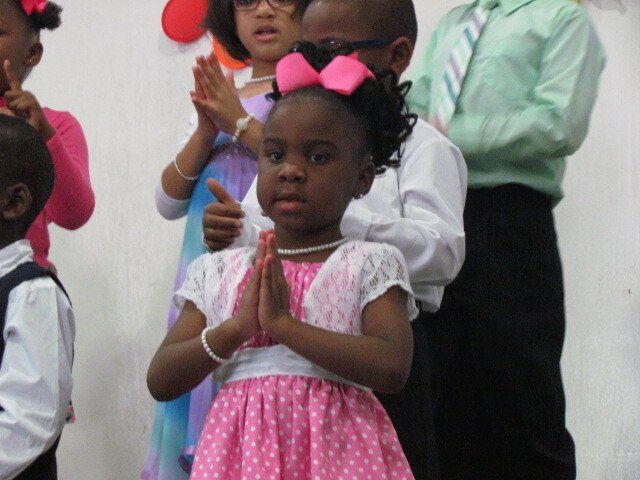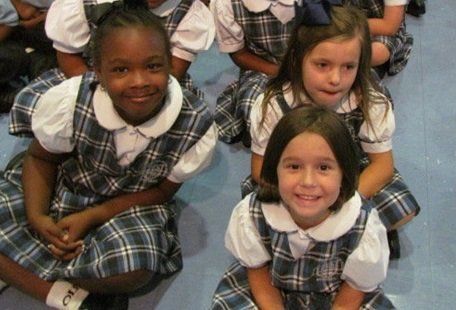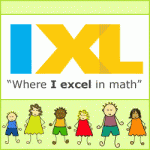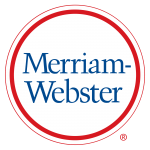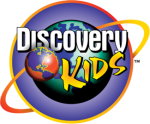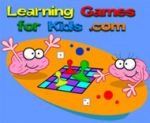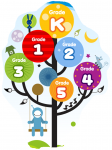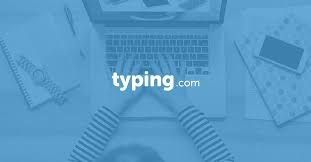For the last 7 years, students have gained more than one full grade level with just 20 hours of work. Over 28.7 million students have used MobyMax to catch up and get ahead. Banish boredom from your classroom with the fastest way to learn!
Our Lady of
Prompt Succor School
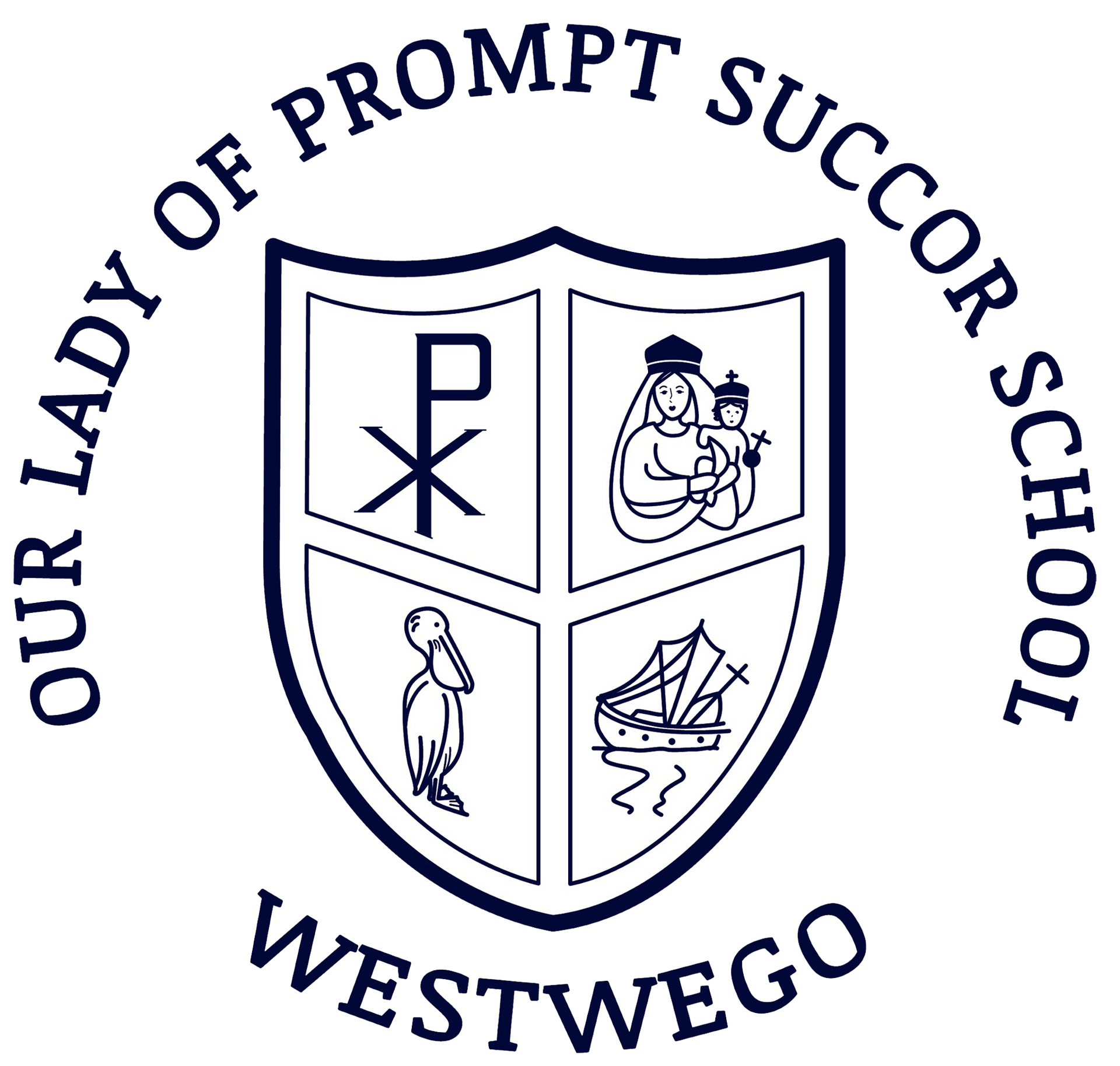
Student Life
Spirituality
-
Prayer
Daily Morning Assembly with Prayer and Scripture; prayer before classes, at lunch, and at the close of the day. We celebrate the Seasons of Advent and Lent, the Feast days of Mary, and the Lives of many of the Saints.
-
Sacraments
Preparation for First Reconciliation and First Communion is a two-year program that takes place in the daily Religion Class during First and Second Grade.
Every Friday we attend the celebration the Eucharist, Mass, as a school in our Parish Church, across the street from the School.
Twice a year we have a Celebration of the Sacrament of Reconciliation, during Advent and Lent. The priests are available for Reconciliation at any time.
-
Outreach to the Poor
Our students and families are very generous and determined to help the less fortunate. Some of the outreach options we have are:
For the Poor In Our Local Area: Thanksgiving Food Drive, Coat Drive, Christmas Angels, Jeans for Jesus during Lent, and Hats On Day for St. Jude’s Children’s Hospital
Support of the Foreign Missions: Holy Childhood Quarter Folders at Advent and Rice Bowls at Lent
-
Prayer Experiences and Celebrations
We have special evenings of prayer as a School Family. Our parents, and even grandparents, aunts and uncles come and join us in prayer: Rosary Nights during the month of October, Stations of the Cross during Lent, and May Crowning at the end of May.
Academics
-
Early Childhood
Our 1 PreK3, 2 PreK4, and 2 Kindergarten classes are set up in such a way as to address the developing skills and needs of these early learners. The balance of center-based learning and group instruction is adjusted as the students move through the Early Childhood Program. The curriculum used in these classes includes: Sadlier for Religion, “Fundations” for Letter Recognition and Phonics, McGraw-Hill “Wonders” for Emergent Reading and Comprehension, "Universal Publishing Handwriting" for basic strokes and letter formation, "Nancy Larson Science" for exploration and wonder, McGraw-Hill “My Math” for colors, shapes, numbers, counting, and beginnings of addition and subtraction. "Calico Spanish" is used for Spanish instruction for Kindergarten twice a Week. Computers, Art, PE, and Music are also a part of the curriculum. Every Early Childhood Classroom has a Smart Board and a Smart Table. In addition, the PreK4 classes have a Hatch Computer System for individualized instruction.
-
Lower Elementary
First Grade and Second Grade make up the Lower Elementary. Each grade has two classrooms, all of which are self-contained.. The curriculum for Lower Elementary is as follows: Sadlier for daily Religion class, “Fundations” for continued phonics and spelling development, McGraw-Hill “Wonders” for Common Core Reading Language Arts, “Universal Publishing” for practice in handwriting, “Nancy Larson Science” for Science and experiments, McGraw-Hill “My Math” for Common Core Math Instruction. "Calico Spanish" is used for Spanish instruction for twice a week. Computers, Art, PE, and Music are also a part of the curriculum. Every Lower Elementary Classroom has a Smart Board.
-
Upper Elementary
The Upper Elementary consists of Third and Fourth Grade. These classes are both self-contained. The curriculum for Upper Elementary is as follows: Sadlier for daily Religion class, McGraw-Hill “Wonders” for Common Core Reading Language Arts, “Universal Publishing Handwriting” for practice in cursive handwriting, cursive for both grades. ‘Nancy Larson Science” for in-depth knowledge, exploration, and experiments, McGraw-Hill "My Math" for Common Core Math Instruction. "Calico Spanish" is used for Spanish instruction twice a week. Computers, Art, PE, and Music are also a part of the curriculum. Every Upper Elementary Classrooms has a Smart Board. Math Honors is available for the advanced Math students.
-
Junior High
The Junior High consists of Fifth, Sixth, and Seventh Grades. These grades are fully departmental. The curriculum for Junior High is as follows: Sadlier for daily Religion class, Scott Forsesman “A Closer Look” for Science and experiments, Glenco McGraw-Hill “My Math Course 1 and 2″ for Common Core Math. Math Honors is available to students who excel in Math. McGraw-Hill “Wonders” for 5th and 6th grade.7th uses Prentice Hall Literature. Prentice Hall "Hola" is used for Spanish instruction twice a week. Computers, Art, PE, and Music are also a part of the curriculum. Every Junior High Classroom has a Smart Board. Students use LearnPad computers as well as NEO Computers.
Clubs & Activities
-
Clubs
We tailor our afterschool clubs to give our students more time in a collaborative environment that gives them exposure to a broader range of ideas that are not covered in the basic curriculum. Clubs at OLPS include but are not limited to:
- Kinder Art Club
- Altar Servers
- Choir
- Puzzle Club
- PreK Art Club
- Coding Club
- Quiz Bowl
- Cheerleading-Closed Group
- Flag Team-Closed Group
- First Grade Art
- Safety Patrol/Student Council-Closed Group
- Gardening Club
OLPS Leadership Clubs include: Student Council and National Junior Beta Club.
-
Performances
OLPS hosts Performances throughout the year involving Hand bells, Band, Poetry, Rap, Dance, and Streamers, and Singing.
September – Grandparents Day
November – Veteran’s Day
December – Christmas Plays
January – Culture Day
Lent – Live Stations of the Cross
March – Spring Musical
May – Talent Show
-
Pep Rallies
Every Month OLPS has a Pep Rally with class competitions. Some of them have included:
August – Race For Education Kick-Off
September – Noise Maker and Who-Dat Competition
October – Halloween Obstacle Course and Red Ribbon Week
November – Thanksgiving Live with Turkey Run Competition
December – Christmas Fun with Song Competition
January – St. John Bosco Day with Field Games
February – Culture Competition
April – Spirit Week – all week!
May – Mary Mazzarello Water Day
Resources
Learning
IXL Math and Language Arts
Sign in to IXL for Our Lady of Prompt Succor! Students will love earning awards and prizes while improving their skills in math and language arts.
Dictionary and Thesaurus | Merriam-Webster
The most trustworthy dictionary and thesaurus of American English, word games, trending words, Word of the Day, Words at Play blog, SCRABBLE, Spanish-English, and medical dictionaries, and audio pronu…
Discovery Kids
Science Topics presented in Videos, Games, and Exploration
Map Games
We have some super fun free online map games. Test your knowledge of countries and geography, great for kids and adults alike! Do you know where Guyana is?
Learning Games For Kids
Learning Games for Kids - Education is part of life. It should be fun and challenging... not boring. Learn while you play games! Animal Games, Art Games, Music
ABCYa
Free Educational Games and Apps for Kids.
Fun
Fun Brain
Arcade Games that emphasize learning
FunBrain is the #1 site for online educational games for kids of all ages. (math, grammar, science, spelling, history)
Typing.com
Typing.com is an online typing tutor program designed for all grade levels. The program provides students with a typing curriculum along with supplemental games and typing story adventures, while also allowing students to track their individual progress and address problem areas in their typing skills. The program provides sections to further develop student knowledge of computer coding, website design, and digital citizenship.
Moby Max - For Every K-8 Subject
Rich and Engaging Content
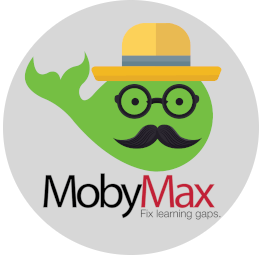
List of Services
-
Mathematics
Mathematics
Moby Math finds and fixes missing math skills that are essential for math comprehension. Students increase an average of 1 grade level with just 20 hours of practice.
Mathematics
-
Fact Fluency
Mathematics - Fact Fluency
Fact Fluency's adaptive instruction enables students to develop math fact fluency quickly. From students who are acquiring facts rapidly to those who are struggling to catch up, Fact Fluency is a must for all students.
Mathematics - Fact Fluency
-
Numbers
Mathematics - Numbers
Numbers instills a deep, intuitive sense for numbers. So much so that our goal is to teach every student how to easily add and subtract large numbers without using a pencil!
Mathematics - Numbers
-
Science
Science
Moby Science takes full advantage of MobyMax’s innovative Touch Curriculum™ technology. The ability to interact with the curriculum increases both engagement and retention.
Science
-
Social Studies
Social Studies
Moby Social Studies takes full advantage of MobyMax’s innovative Touch Curriculum™ technology. The ability to interact with the curriculum increases both engagement and retention.
Social Studies
-
Grammar
Grammar
Moby Language finds and fixes missing essential language and grammar skills. Students increase an average of 1.5 grade levels with just 20 hours of practice.
Grammar
-
Vocabulary Builder
Vocabulary
Moby Vocabulary is the fastest way to learn new words and ensures that students remember words for a lifetime.
Vocabulary
-
Spelling Lists
Spelling Lists
Spelling List gives teachers the ability to quickly create and assign spelling lists tailor-made for their needs.
Spelling Lists
-
Alphabet Letters
Early Reading - Alphabet Letters
MobyMax’s Alphabet Letters is the most efficient way for a child to learn and reinforce their letter knowledge.
Early Reading - Alphabet Letters
-
Phonic Sounds
Early Reading - Alphabet Sounds
Mastering letter-phoneme correspondence is the first step towards successfully decoding words and becoming a proficient reader.
Early Reading - Alphabet Sounds
-
Early Words
Early Reading - Early Words
Students are in love with Early Reading Trio. Students start by building words with letters and sounds. Then, they read stories from the words they've built.
Early Reading - Early Words
-
Sight Words
Early Reading - Sight Words
MobyMax’s Sight Words module covers all of the words in both the Dolch and Fry Sight Word lists. Teachers can choose to use both lists or just focus on one.
Early Reading - Sight Words
-
Foundational Reading
Reading - Foundational Reading
Foundational Reading focuses on key skills such as phonological and phonemic awareness, decoding, segmenting, blending, syllabication, and more.
Reading - Foundational Reading
-
Stories
Reading - Stories
Reading Stories pairs literature stories and informational articles with similar topics to encourage deep reading.
Reading - Stories
-
Literature Skills
Reading - Literature Skills
Literature Skills teach the specific skills of reading such as identifying the main idea. Each reading skills lesson breaks the Common Core reading standards into small, achievable skills with a Teach Me lesson and targeted practice problems.
Reading - Literature Skills
We do not discriminate on the basis of race, color, national or ethnic origin in the administration of educational policies.

